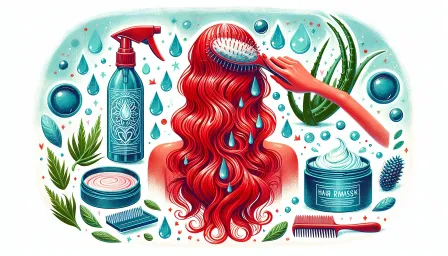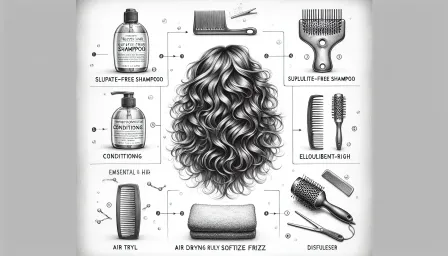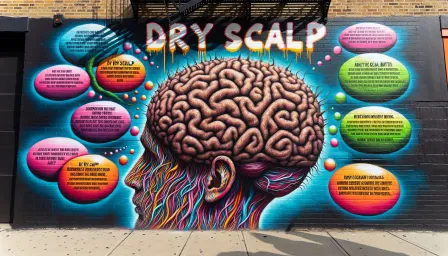Understanding Hair Loss Due to Stress: Causes and Solutions

Discover the causes of hair loss due to stress and explore effective solutions to prevent and manage stress-induced hair shedding.
Hair loss can be a distressing experience, particularly when it seems to stem from emotional turbulence or high stress levels. This article delves into the relationship between stress and hair loss, explores the scientific basis behind it, and offers effective solutions to manage and mitigate this issue.
What is Hair Loss Due to Stress?
Hair loss due to stress, medically known as telogen effluvium, is a condition where significant stress pushes large numbers of hair follicles into a resting phase. Within a few months, affected hairs may fall out suddenly when simply combing or washing your hair. Understanding the underlying mechanisms behind stress-induced hair loss can help in developing effective coping strategies and treatments.
Causes of Stress-Induced Hair Loss
Telogen Effluvium
Telogen effluvium is one of the most common forms of hair loss associated with stress. This condition occurs when stress causes hair follicles to enter a premature resting phase. Typically, around 85-90% of hair follicles are in the growth phase (anagen) at any given time. However, stress can disrupt this cycle, pushing more follicles into the resting phase (telogen), leading to increased hair shedding.
Alopecia Areata
Alopecia areata is an autoimmune condition that can be triggered or exacerbated by stress. The body's immune system attacks the hair follicles, resulting in patchy hair loss. While the exact cause is not fully understood, stress is known to be a significant factor in the development and progression of this condition.
Trichotillomania
Trichotillomania is a psychological condition where individuals have an irresistible urge to pull out their hair, often as a coping mechanism for dealing with stress or anxiety. This self-inflicted hair loss can lead to noticeable bald patches and significant emotional distress.
Identifying Hair Loss Due to Stress
Signs and Symptoms
Recognizing the signs and symptoms of stress-induced hair loss can help in seeking timely interventions. Common indicators include:
- Sudden hair thinning
- Increased hair shedding during washing or combing
- Patchy hair loss
- Visible bald spots
- Brittle or weakened hair
Diagnosis
Consulting a healthcare professional, such as a dermatologist or trichologist, is crucial for an accurate diagnosis. They may perform a physical examination, review medical history, and conduct tests like a scalp biopsy or blood tests to rule out other causes and confirm stress-induced hair loss.
Solutions and Treatments
Stress Management Techniques
Effective stress management is vital in combating hair loss due to stress. Consider incorporating the following practices into your routine:
- Mindfulness and Meditation: Practices like mindfulness and meditation can significantly reduce stress levels.
- Exercise: Regular physical activity helps in releasing endorphins, which act as natural stress relievers.
- Healthy Diet: A balanced diet rich in vitamins and minerals can promote healthy hair growth.
- Sleep Hygiene: Ensure you get adequate sleep to allow your body to recover from stress.
Medical Treatments
Depending on the severity, medical treatments might be necessary. These can include:
- Minoxidil: An over-the-counter topical treatment known to stimulate hair growth.
- Corticosteroids: These are prescribed for conditions like alopecia areata to reduce inflammation and immune response.
- Anti-anxiety Medications: When prescribed by a healthcare provider, these can help reduce the impact of stress on the body, including hair loss.
Home Remedies
Several home remedies can support hair health and reduce stress-related shedding:
- Aloe Vera: Known for its soothing properties, it can help maintain a healthy scalp.
- Essential Oils: Oils like lavender and rosemary can be massaged into the scalp to improve blood circulation and promote hair growth.
- Scalp Massage: Regular scalp massages can increase blood flow to the hair follicles.
Professional Support
Seeking support from a mental health professional or a support group can be beneficial. Cognitive-behavioral therapy (CBT) and other counseling methods can help address underlying stress and anxiety, contributing to overall well-being and reducing hair loss triggers.
Preventative Measures
Preventing hair loss due to stress involves adopting a proactive approach to managing stress and maintaining hair health:
- Establish a regular self-care routine
- Avoid harsh hair treatments and styling practices
- Stay hydrated and maintain a nutrient-rich diet
- Engage in activities that foster relaxation and joy
Conclusion
Hair loss due to stress can be a challenging and emotional experience. However, understanding the causes and implementing effective solutions can help manage and mitigate its effects. By adopting stress management techniques, exploring medical treatments, utilizing home remedies, and seeking professional support, individuals can improve their hair health and overall well-being.



























